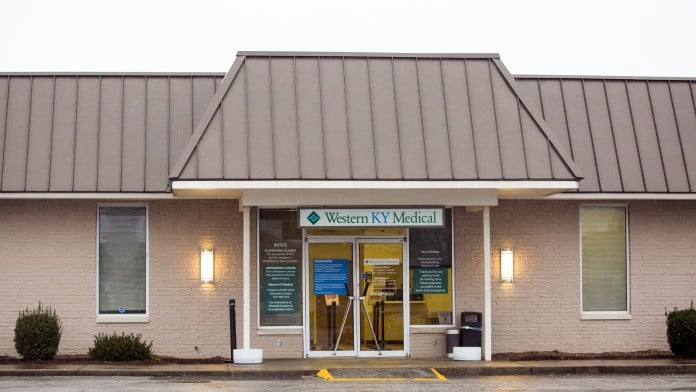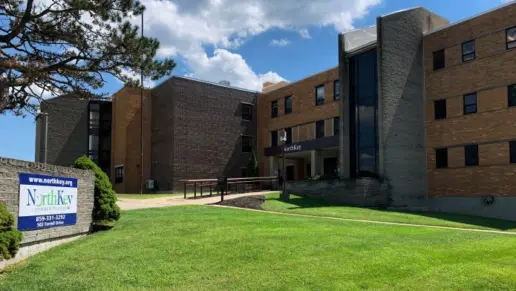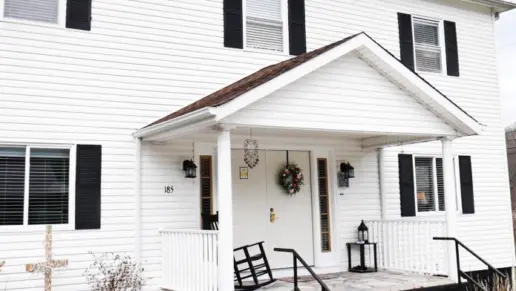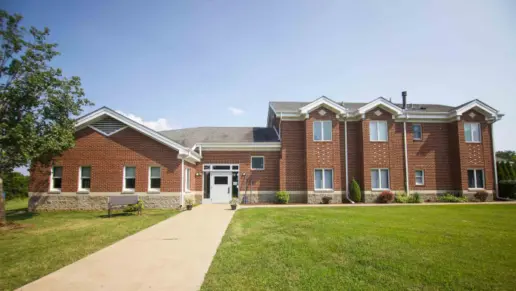Best methadone clinic I've gone to! They're very efficient and my counselor is really nice. I feel they really care about me staying sober
About Western KY Medical
You can find Western KY Medical’s Pinnacle Treatment in the town of Hopkinsville, Kentucky. This is a CARF accredited outpatient opioid clinic specializing in medication assisted treatment. You can think of this clinic as your trusted partner in healing. This is because their broader services reflect a commitment to ensuring complete recovery for the people they serve. Many past clients also attest to their tailored and compassionate care.
Hopkinsville is also known as Hoptown. It’s a small city in Christian County. The clinic also serves folks from nearby areas including Clarksville and Nashville in Tennessee. The Pennyrile Parkway runs through Hoptown and offers quick access to these cities. The clinic is conveniently situated near Fort Campbell and within easy reach of Crofton.
Routes like I24 also make it easy for folks combing from Franklin. Hopkinsville Transit System operates bus routes that can benefit locals seeking care at the clinic. Worth noting is that Hoptown is home to the Trail of Tears Commemorative Park, Jeffers Bend Environmental Center and Pennyroyal Area Museum. These attractions offer you a chance to balance treatment with leisure.
The thing I like most about this clinic is its affordability. They keep costs low and treatment accessible by accepting a variety of insurance. This includes Medicaid, Medicare and Medicare Advantage. Most commercial insurance is acceptable as well including out of network options.
Medication Supported Recovery with Methadone
Medication assisted treatment uses meds approved by the FDA alongside counseling to help you heal completely. Pinnacle Treatment has methadone and Suboxone available for this program. A thorough clinical evaluation during intake enables the team to tailor meds, dosage and frequency of counseling to your unique needs via personalized treatment planning.
So you can expect a prescription of either methadone or suboxone depending on your personalized care plan. These meds curb cravings and reduce painful withdrawal symptoms when taken as prescribed. That is they take care of the physical symptoms of your opioid addiction. This enables you to focus on the emotional, psychological and social aspects via counseling.
Telehealth Counseling for Opiod Recovery
Pinnacle Treatment offers counseling and educational classes to help you build strong coping skills and prevent relapse. You’ll attend tailored individual sessions with your assigned counselor to resolve personal challenges affecting your healing. You’ll also attend group sessions with peers in recovery.
Additionally, you’ll attend life skills classes to practice problem solving, critical thinking and self management. The beauty of it all is that the clinic supports telehealth counseling. This allows you to attend sessions in the comfort of your home. This makes therapy super comfy and convenient. It’s especially helpful if you have a busy schedule or limited transportation.
Specialized Opioid Recovery for Pregnant Women
Pregnant women with opioid use issues need extra care to protect both their health and their baby’s wellbeing. Pinnacle Treatment provides tailored care that serves the needs of these women. The program helps manage the unique risks that come with pregnancy and substance use. They also focus on making sure both mom and baby get the best possible start in life. It’s all about safety and creating the best chance for a healthy future.
Rehab Score
Gallery


Location
Accepted Insurance
Other Forms of Payment
Private insurance refers to any kind of healthcare coverage that isn't from the state or federal government. This includes individual and family plans offered by an employer or purchased from the Insurance Marketplace. Every plan will have different requirements and out of pocket costs so be sure to get the full details before you start treatment.
Self-pay involves paying for treatment out of your own pocket. You can use savings or credit, get a personal loan, or receive help from family and friends to fund your treatment. If you don't have insurance or your insurance plan doesn't cover a specific program, self-pay can help ensure you still get the care you need.
Financial aid can take many forms. Centers may have grants or scholarships available to clients who meet eligibility requirements. Programs that receive SAMHSA grants may have financial aid available for those who need treatment as well. Grants and scholarships can help you pai for treatment without having to repay.
Medicare is a federal program that provides health insurance for those 65 and older. It also serves people under 65 with chronic and disabling health challenges. To use Medicare for addiction treatment you need to find a program that accepts Medicare and is in network with your plan. Out of pocket costs and preauthorization requirements vary, so always check with your provider.
Medicaid is a state based program that helps lower-income individuals and families pay for healthcare. Medicaid covers addiction treatment so those enrolled can use their coverage to pay for rehab. When a program accepts Medicaid the client often pays very little or nothing out of their own pocket.
Addiction Treatments
Levels of Care
Treatments
The goal of treatment for alcoholism is abstinence. Those with poor social support, poor motivation, or psychiatric disorders tend to relapse within a few years of treatment. For these people, success is measured by longer periods of abstinence, reduced use of alcohol, better health, and improved social functioning. Recovery and Maintenance are usually based on 12 step programs and AA meetings.
Drug rehab in Kentucky often starts with detox, then includes inpatient or outpatient treatment, and continues with aftercare support. Specific methods used during each of these phases varies, but often include individual and group counseling, medication, and recreational therapies.
Opioid rehabs specialize in supporting those recovering from opioid addiction. They treat those suffering from addiction to illegal opioids like heroin, as well as prescription drugs like oxycodone. These centers typically combine both physical as well as mental and emotional support to help stop addiction. Physical support often includes medical detox and subsequent medical support (including medication), and mental support includes in-depth therapy to address the underlying causes of addiction.
Substance rehabs focus on helping individuals recover from substance abuse, including alcohol and drug addiction (both illegal and prescription drugs). They often include the opportunity to engage in both individual as well as group therapy.
Programs



Clinical Services
Cognitive Behavioral Therapy (CBT) is a therapy modality that focuses on the relationship between one's thoughts, feelings, and behaviors. It is used to establish and allow for healthy responses to thoughts and feelings (instead of unhealthy responses, like using drugs or alcohol). CBT has been proven effective for recovering addicts of all kinds, and is used to strengthen a patient's own self-awareness and ability to self-regulate. CBT allows individuals to monitor their own emotional state, become more adept at communicating with others, and manage stress without needing to engage in substance abuse.
Group therapy is any therapeutic work that happens in a group (not one-on-one). There are a number of different group therapy modalities, including support groups, experiential therapy, psycho-education, and more. Group therapy involves treatment as well as processing interaction between group members.
In individual therapy, a patient meets one-on-one with a trained psychologist or counselor. Therapy is a pivotal part of effective substance abuse treatment, as it often covers root causes of addiction, including challenges faced by the patient in their social, family, and work/school life.
Motivational Interviewing (MI) is a clinical approach to helping people with substance abuse issues and other conditions shift behavior in positive ways. It is more goal-oriented than traditional psychotherapy, as MI counselors directly attempt to get clients to consider making behavioral change (rather than wait for them to come to conclusions themselves). Its primary purpose is to resolve ambivalence and help clients become able to make healthy choices freely.
Research clearly demonstrates that recovery is far more successful and sustainable when loved ones like family members participate in rehab and substance abuse treatment. Genetic factors may be at play when it comes to drug and alcohol addiction, as well as mental health issues. Family dynamics often play a critical role in addiction triggers, and if properly educated, family members can be a strong source of support when it comes to rehabilitation.
Life skills trainings involve all the skills a person must have in order to function successfully in the world. These include time management, career guidance, money management, and effective communication. Truly successful addiction recovery is based on the ability to not only live substance-free, but to thrive. Life skills teaches the practical necessities of functioning in society, which sets clients up for success in life, and therefore sobriety.
Amenities
-
Residential Setting
-
Private Rooms
Accreditations

The Substance Abuse and Mental Health Services Administration (SAMHSA) is a branch of the U.S. Department of Health and Human Services. Established in 1992 by congress, SAMHSA's mission is to reduce the impact of substance abuse and mental illness on American's communities.
SAMHSA Listed: Yes

The Commission on Accreditation of Rehabilitation Facilities (CARF) is a non-profit organization that specifically accredits rehab organizations. Founded in 1966, CARF's, mission is to help service providers like rehab facilities maintain high standards of care.
CARF Accreditation: Yes
Accreditation Number: 253336

The National Association of Addiction Treatment Providers (NAATP) is a professional association that represents organizations in the field of addiction services. Founded in 1978, NAATP's mission is to advance addiction services and ensure that high-quality addiction treatment is available and accessible.
NAATP Member: Yes
Member ID: 11706
Contact Information
609 Hammond Plaza
Hopkinsville, KY 42240





